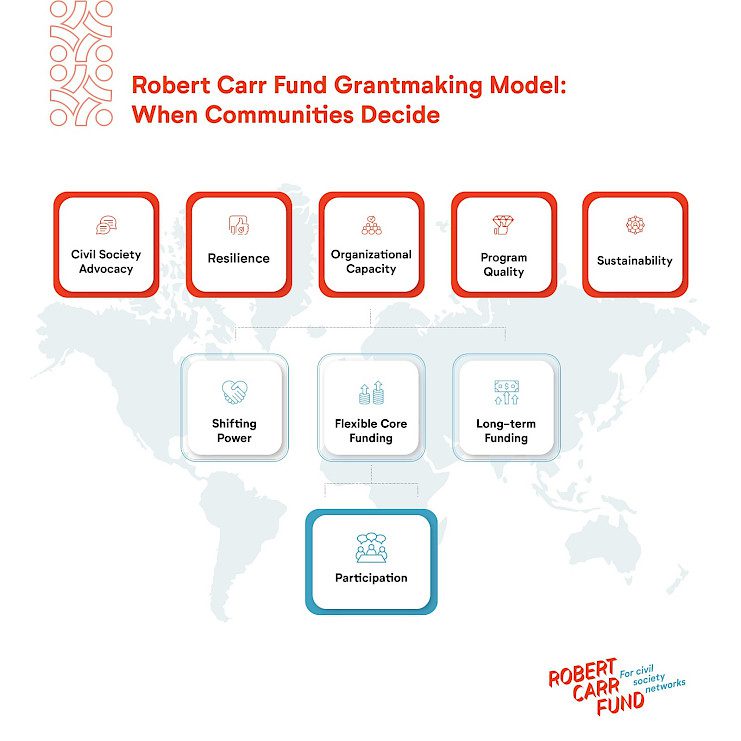When Communities Decide: RCF Participatory Grantmaking Model
As the Robert Carr Fund (RCF) celebrated 10 years, we documented our successful model of providing long-term, flexible core funding informed by a participatory approach. The report, When Communities Decide explores the value, benefits and challenges of this approach and outlines the lessons we have learnt in the process.
RCF Participatory Grantmaking Model
Our main lesson: participatory grantmaking that prioritizes core funding creates positive outcomes for grantees, funders, and ultimately the HIV response.
How does it work?
RCF’s approach prioritizes participation, shifting the power, flexible core funding and long-term funding.
We don’t feel like we’re being ‘powered over’. Their job is to support us to be strong, our job is to deliver for the network.” – Georgina Caswell, Global Network of People Living with HIV (GNP+), Grantee
- RCF takes participation beyond grantmaking. Both civil society members and funders participate equally in our governance structures and in making all key decisions, from developing our Strategy and Theory of Change to how we measure results.
- Shifting power to inadequately served populations (ISPs) ensures that the funding decisions are made by people who know the context best. This approach helps build strong, resilient, and sustainable civil society and community networks who are able to make a greater impact in the global HIV response.
- Flexible core funding is critical for civil society to thrive, be free to innovate and be agile and adaptable when working in challenging contexts.
- Improving laws and policies takes time. Long term funding provides security for civil society leaders to engage in national and global advocacy, to build sustainability, and to invest in staff.

What are the results?
Most importantly, this approach works. It contributes to stronger outcomes for civil society advocacy, program quality, resilience, sustainability, and organizational capacity. By supporting networks to strengthen their own organizations RCF enables them to also grow their advocacy capacity and effectiveness. In the most recent grant cycle, most grantees reported positive changes to laws and policies affecting ISPs and increased access to and better quality of HIV services linked to their advocacy.
RCF has crashed through the boundaries of good practice… RCF enables the power dynamics to play out differently, where even though it’s donors and inadequately served populations working together, they’re operating more like peers.” – Kate Thomson, The Global Fund, RCF International Steering Committee Observer
Participatory grantmaking is the best way to support a community-led HIV response. RCF’s model of participatory grantmaking is recognized as best practice, including by UNAIDS and the Global Fund. Our funders, UNAIDS, the Global Fund, civil society members and grantees see the value of the approach, and believe it should be used more widely.
RCF Participatory Grantmaking Model
Read more about our definition in the Glossary.